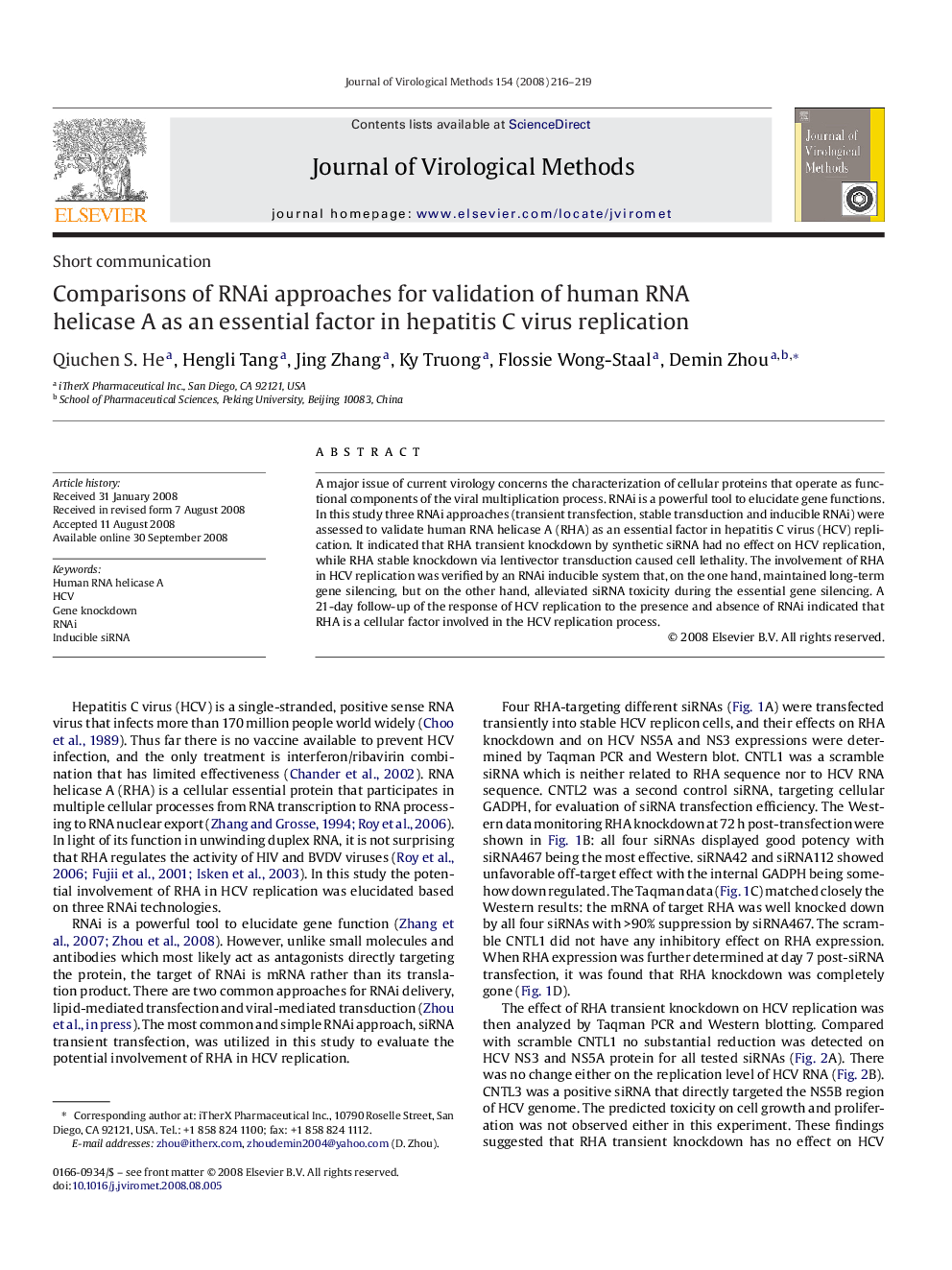| Article ID | Journal | Published Year | Pages | File Type |
|---|---|---|---|---|
| 3407632 | Journal of Virological Methods | 2008 | 4 Pages |
A major issue of current virology concerns the characterization of cellular proteins that operate as functional components of the viral multiplication process. RNAi is a powerful tool to elucidate gene functions. In this study three RNAi approaches (transient transfection, stable transduction and inducible RNAi) were assessed to validate human RNA helicase A (RHA) as an essential factor in hepatitis C virus (HCV) replication. It indicated that RHA transient knockdown by synthetic siRNA had no effect on HCV replication, while RHA stable knockdown via lentivector transduction caused cell lethality. The involvement of RHA in HCV replication was verified by an RNAi inducible system that, on the one hand, maintained long-term gene silencing, but on the other hand, alleviated siRNA toxicity during the essential gene silencing. A 21-day follow-up of the response of HCV replication to the presence and absence of RNAi indicated that RHA is a cellular factor involved in the HCV replication process.
